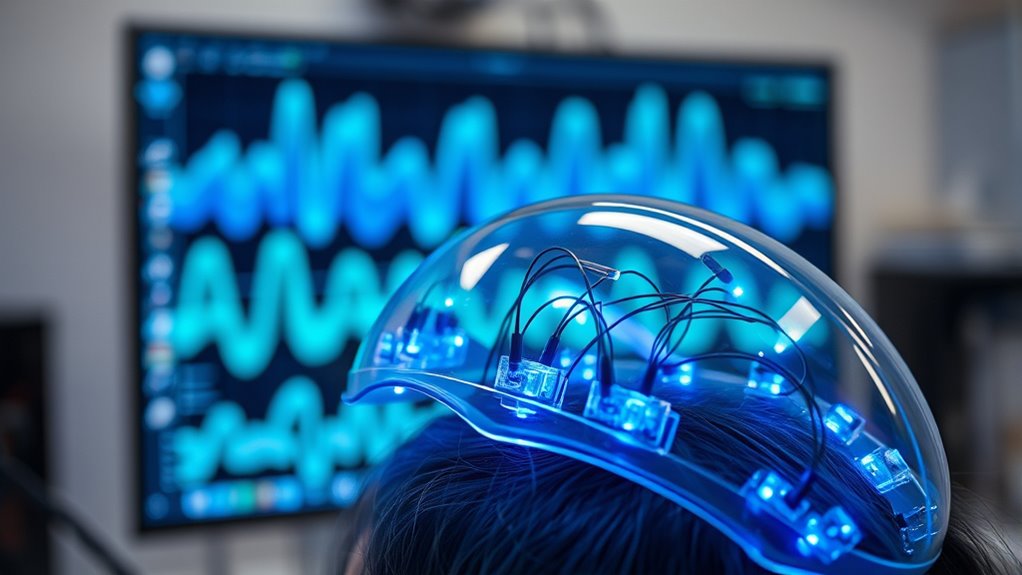Did you know that over 80% of recent BCI innovations have stemmed from open-source projects? This shift makes mind-controlled devices more accessible and customizable than ever before. As you explore the potential of these projects, you’ll find they’re transforming how we develop neurotechnology. But what does this mean for safety, ethics, and the future of brain-computer interaction?
Key Takeaways
- Open-source BCI projects democratize access, enabling broader innovation in developing mind-controlled devices.
- They foster customization, allowing users to tailor neurofeedback protocols and hardware for specific applications.
- Transparency in algorithms and designs promotes responsible use and facilitates collaboration within the community.
- Open-source initiatives accelerate advancements while highlighting the need for ethical guidelines and data privacy.
- Increased accessibility supports safer, more adaptable brain-controlled devices with potential societal and therapeutic benefits.

Have you ever wondered how open-source brain-computer interface (BCI) projects are transforming neuroscience and technology? These initiatives are democratizing access to brain-machine integration, making it possible for enthusiasts, researchers, and developers to innovate without the restrictions of proprietary systems. One of the key areas impacted by open-source BCIs is neurofeedback applications. With open platforms, you can now design personalized neurofeedback protocols to help users improve focus, manage stress, or recover from neurological conditions. Because the software and hardware designs are accessible, you have the flexibility to experiment with different signal processing algorithms, sensors, and feedback mechanisms. This openness accelerates advancements and broadens the scope of neurofeedback, enabling more effective and tailored therapies that were previously limited by commercial constraints. Additionally, the ability to modify and calibrate hardware components such as sensors can significantly enhance color accuracy in neurofeedback systems, leading to more precise and reliable outcomes.
However, as you delve into these projects, it’s essential to consider the ethical considerations involved. Open-source BCI development raises questions about data privacy, consent, and the potential for misuse. Since these systems can interpret and influence brain activity, there’s a responsibility to make certain that user data remains confidential and secure. Developers and users alike need to be mindful of how brain data is collected, stored, and shared. Additionally, the accessibility of these tools means that more people—including those without formal medical training—can potentially use or modify BCI devices. This democratization is a double-edged sword: on one hand, it fosters innovation and inclusivity; on the other, it necessitates clear guidelines to prevent misuse or unintended harm.
Your engagement with open-source BCIs also involves understanding the importance of establishing ethical standards for their development and deployment. Transparency in algorithms, informed user consent, and safeguarding against malicious applications are essential. As the technology advances, there’s a growing need for community-driven discussions about responsible use, especially as these devices become more integrated into daily life. Open-source projects empower you to contribute to safer, more ethical innovations, but they also require a collective effort to navigate the moral landscape. In essence, the open-source movement is not just about technological progress; it’s about creating a responsible ecosystem where mind-controlled devices can truly benefit society without compromising ethical principles.
Conclusion
By diving into open-source BCI projects, you’re opening a door to a vibrant world where innovation blooms like a garden in spring. It’s a powerful act of collaboration, turning individual ideas into a symphony of progress. Just remember, with great power comes great responsibility—like tending a delicate plant, you must nurture transparency and ethics. Together, you can shape mind-controlled devices that are as reliable as a trusty compass guiding us forward.








